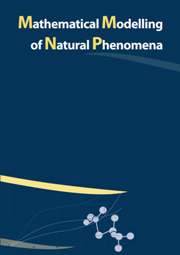Article contents
Improving CancerTherapy by Doxorubicin and Granulocyte Colony-Stimulating Factor: Insights from a Computerized Model of Human Granulopoiesis
Published online by Cambridge University Press: 15 May 2008
Abstract
Neutropenia is a significant dose-limiting toxicity of cancerchemotherapy, especially in dose-intensified regimens. It iswidely treated by injections of Granulocyte Colony-StimulatingFactor (G-CSF). However, optimal schedules of G-CSF administrationare still not determined. In order to aid in identifying moreefficacious and less neutropenic treatment protocols, we studied adetailed physiologically-based computer model of granulopoiesis,as affected by different treatment schedules of doxorubicin and/orGranulocyte Colony-Stimulating Factor (G-CSF). We validated themodel as evident from accurate prediction of clinical data onhuman granulopoiesis in healthy individuals and indoxorubicin-treated cancer patients, with or without G-CSFsupport. Based on our model, we suggest new G-CSF administrationregimens. These regimens include reduced G-CSF doses, optimallytimed post-chemotherapy. Application of these regimens can lead tominimization of G-CSF side effects, as well as more cost-effectiveand less myelotoxic protocols. Currently clinical trials are beingdesigned in order to test these new treatment regimens.
- Type
- Research Article
- Information
- Mathematical Modelling of Natural Phenomena , Volume 1 , Issue 2: Hematopoiesis and blood diseases , 2006 , pp. 70 - 80
- Copyright
- © EDP Sciences, 2006
- 7
- Cited by


